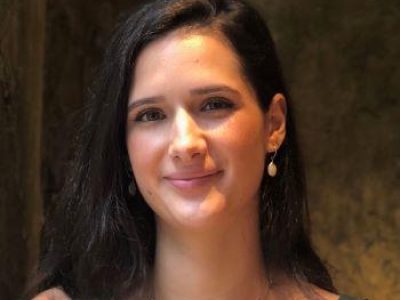Join your colleagues from around the world for a wide variety of learning opportunities from April 2024 - February 2025. Registration is free for IBIA and affiliated organization members and $25 for non-members. We look forward to welcoming you to the 2024 - 2025 IBIA Webinar Series. All webinar registrants will receive a recording of the webinar several days after the live event.
Questions: congress@internationalbrain.org
Registration links for the sessions are below. If you are signing up to receive the recording of the webinar after the live date, please email Jennifer Wyllie at jwyllie@internationalbrain.org.
Advancing Communication Partner Training following Brain Injury: Past, Present, and Future
Speaker: Petra Avramović, PhD, BAppSc, CPSP
Date and Time: February 6, 2025, 3 PM EST/February 7, 2025, 7 AM AEDT
Organized by Social Cognition, Communication and Affect Special Interest Group.
Session Summary:
This webinar will trace the journey of Communication Partner Training (CPT), from its traditional roots in communication rehabilitation to its current role in improving conversations for people with brain injury. It will highlight how core treatment elements of CPT have been adapted and maintained in digital health environments through collaborative design processes, allowing for greater flexibility and accessibility without losing their original intent. The session will also examine current innovations and future directions, including new technologies and efforts to enhance accessibility for diverse populations.

Speaker Bio:
Petra Avramović is a lecturer, early career researcher, and certified
practicing speech pathologist. She has experience in clinical and
research settings with a variety of populations, with particular focus
in working with people with traumatic brain injury (TBI). Her PhD
research aimed to collaboratively develop a novel digital health
communication partner training program with people with TBI. Her
research in co-designing cognitive-communication interventions with key
stakeholders, has laid the groundwork for the development of the Social
Brain Toolkit, a suite of tools to support people with ABI and their
communication partners have positive and successful conversations and
social media experiences.
Registration:
To register, please click the link below.
Recent Webinars
Clinically Focussed mTBI Research in New Zealand
Speakers: Josh McGeown, PhD and Katherine Forch, PhD candidate, PGDip, BHSC
Date and Time: January 29, 2025, 2 PM EST/January 30, 2025, 8 AM NZDT
Organized by Concussion-mTBI Special Interest Group.
Session Summary:
This webinar will provide an overview of the clinically focussed mTBI research landscape in New Zealand. Dr. Josh McGeown will share preliminary insights on how advanced magnetic resonance imaging can enhance our understanding of symptom burden and clinical recovery after mTBI. Katherine Forch will discuss learnings from the development of their mTBI clinic model at Axis Sports Medicine Specialists – from one site, with one physician, one physiotherapist and an exercise physiologist, to multiple sites and over 40 clinical staff. This is an example of an interdisciplinary clinical management pathway for mTBI in New Zealand, informed by, and collaborating with, research. Katherine will also outline her PhD research aimed at improving mTBI assessment and return-to-play decision-making for sports-related concussion.
Registration:
To register, please click the link below.
Registration - mTBI WebinarThe Post-Traumatic Confusional State: Defining the Upper Boundary of Disorder of Consciousness
Speaker: Yelena G. Bodien, PhD
Date and Time: November 20, 2024, 11:00AM ET
Organized by Disorders of Consciousness Special Interest Group.
Session Summary:
After a severe traumatic brain injury, a common trajectory of recovery progresses from coma, to vegetative state/unresponsive wakefulness syndrome, minimally conscious state, and ultimately recovery into a confusional state marked by disorientation, significant impairments in cognitive function, inattention, and a constellation of clinical symptoms including behavioral dysregulation and fluctuation in symptoms. Referred to as the post-traumatic confusional state (PTCS), this phase of recovery can be distressing for families to witness and challenging for clinicians to treat. We will discuss the recently published case definition for PTCS and ongoing work to understand the biomarkers underlying this condition.
Registration:
To register, please click on button below.
Register - Confusional State WebinarClinical Evolution and Multimodal Prognostic Evaluation of Anoxic People with Disorders of Consciousness
Speaker: Anna Estraneo, MD
Date and Time: October 9, 2024, 11:00AM ET
Organized by Disorders of Consciousness Special Interest Group.
Session Summary:
Although anoxic aetiology is thought to have worse outcomes than traumatic brain injury from the acute phase, advances in treatment from the acute to the long-term phase have led to an increase in the number of post-anoxic individuals who persist in a prolonged disorders of consciousness. In this context, accurate multimodal assessment can help clinicians to identify patients with a high probability of recovery and avoid inappropriate withdrawal of life-sustaining therapy in the acute phase. This webinar will provide an overview of evidence-based neuro-prognostication with a focus on conventional predictors that are easy to collect at the patient's bedside and in all clinical settings.
Registration:
To register, click on the button below.
Registration - Clinical Evolution WebinarStandardized Patient Flow for Concussion Registry within an Outpatient Sports Medicine Clinic
Speaker: M. Nadir Haider, MD, PhD
Date and Time: July 16, 2024 at 12:00PM ET
Organized by Concussion - mTBI Special Interest Group.
Session Summary:
Outcomes registries are crucial for improving patient care; however, patient flow should be standardized between clinicians at the same practice to ensure uniformity and reliability of automated data retrieval. This presentation discusses the standardized approach to seeing concussion patients at three UBMD Orthopedics and Sports Medicine clinics and the additional steps undertaken to implement a prospective registry at multiple sites.
Registration
To register, click on the button below.
Registration - Concussion WebinarFunctional Brain Imaging in DoC Clinical Practice and the Forensic Arena: What Can Be Said with Confidence
Speaker: Steven Laureys, MD, PhD, FEAN
Date and Time: May 29, 2024 at 11:00AM ET
Organized by Disorders of Consciousness Special Interest Group.

Session Summary:
This talk will explore the role of brain imaging in assessing patients with disorders of consciousness (DoC) both in clinical practice and forensic settings. We will discuss the current state of knowledge regarding the use of bedside behavioral examination as compared to neuro-imaging techniques such as structural and functional magnetic resonance imaging (MRI), electroencephalography (EEG), evoked potentials (EP) and positron emission tomography (PET), highlighting what can be confidently inferred from these methods in terms of diagnosis, prognosis, and the detection of covert consciousness using brain computer interfaces (BCI). The talk will also address the challenges and limitations of these techniques, emphasizing the need for cautious interpretation and the integration of multiple assessment tools in comprehensive patient care.
Registration:
To register on the webinar, please click on the button below.
Registration - DOC RegistrationPost Traumatic Fatigue: Best Practices Assessment and Clinical Management
Speaker: Brian Greenwald, MD
Date and Time: May 9, 2024 at 12:00PM ET
Organized by North America Brain Injury Society.

Session Description:
This webinar will review the definition of fatigue as well as how it is conceptualized including peripheral versus central fatigue. Anatomic areas of the brain implicated in fatigue will be reviewed. Assessment tool for fatigue, the differential diagnosis, medical work up and a range of treatment considerations will be discussed.
Registration:
To register on the webinar, please click on the button below.
Our Journey to Recognizing Brain Injury as a Chronic Condition
Speaker: John D. Corrigan, PhD
Interviewed by Katherine Snedaker, LCSW
Date and Time: April 17, 2024 at 12:00PM ET
Organized by PINK Concussions.

Session Summary:
Over the last 15 years the field of brain injury rehabilitation has evolved our view of the long-term effects of many brain injuries. Longitudinal data from the TBI Models Systems and TRACK-TBI have shown that brain injury remains more dynamic than static many years post injury. The evolution of this recognition, and its implications for treatment, will be discussed.
Registration:
To register for this webinar, click the Registration button.
